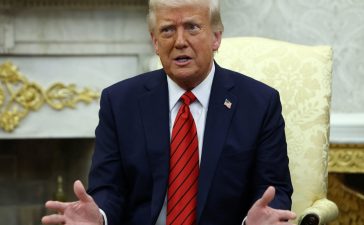Following the unfortunate demise of Iran’s President Ebrahim Raisi and his Foreign Minister in a helicopter crash on Sunday evening, there is an eerie calm in the crypto space as analysts predict a major impact on the crypto ecosystem of the country.
Iran, considered as a counter-weight in the Middle East, is heavily invested in crypto as statistics predict a 14.47% growth in crypto revenue from 2024 to 2028. Recently, Iran and Russia had teamed up to release a ‘BRICS digital currency. The West- America to be precise- has accused Iran of bypassing sanctions through crypto trade.
On Sunday evening, news broke out of a chopper crash, after which the Iranian President Raisi and Iranian Foreign Minister Hossein Amirabdollahian- along with the chopper crew went missing. Confirmed reports of their deaths were announced on Monday morning as world leaders including Indian Prime Minister Narendra Modi paid their condolences.
The demise of Iran’s president is bound to have global, political and economic ramifications and the crypto sector is also expected to face turbulence ahead.
Iran’s Current Standing on Crypto
Iran has recognized cryptocurrency mining as a legal industry and has introduced regulations for the already existing mining operations since 2018. A report by Reuters has revealed that Iran earns close to $1 Billion in crypto mining every year and amounts to 4.5% of all Bitcoin mining. The mining revenue is used to lessen the impact of sanctions and trade embargo put against Iran. As of 2024, Iran has shown a positive and rapid stance toward cryptocurrency regulations. The Iranian regime has approved a set of regulations for trading cryptocurrencies, which may potentially allow for bypassing international sanctions. This decision has raised concerns globally about the possible implications for sanctions enforcement.
Iran has also legalized the use of cryptocurrencies for imports, thereby bypassing the dollar-dominated global finance system. This shift towards digital currencies could possibly continue or accelerate depending on the political direction the new upcoming leadership decides to take.
Crypto to Bypass Sanctions against Iran
Iran has been increasingly using cryptocurrencies as a means to counter international sanctions imposed by the US and its allies. The sanctions and embargoes have mostly restricted Iran’s access to the global financial system. The US and its allies have time and again accused Iran of using US-based exchange platforms to trade crypto despite sanctions in place. Iran used bitcoin mining operations and other crypto activities to cushion the impact of sanctions against them.
Future Course of Action
In the global financial markets, the deaths of Iran’s high-profile figures could also influence global investment trends, particularly in commodities like oil and precious metals, which could indirectly affect the cryptocurrency markets due to their increasing correlation with broader financial markets.
The new leadership in Iran, their stance on cryptocurrency usage in the face of sanctions, and the global geopolitical reactions will play crucial roles in shaping the future of cryptocurrency both within Iran and across the global financial landscape.
Additionally, Iran’s National Cyberspace Center has prepared a draft for a state-backed cryptocurrency project, indicating a move towards introducing a national digital currency. This project aims to facilitate international money transfers and potentially circumvent challenges posed by U.S. sanctions.
One can make as many speculations as they like about the situation of the crypto industry in Iran until the next president takes the pledge. However, most of the Iranian leadership is working in the same direction and wants to strengthen their economy. Additionally, they clearly understand that only cryptocurrency can provide them with global market access without the interference of rival countries like the U.S.






